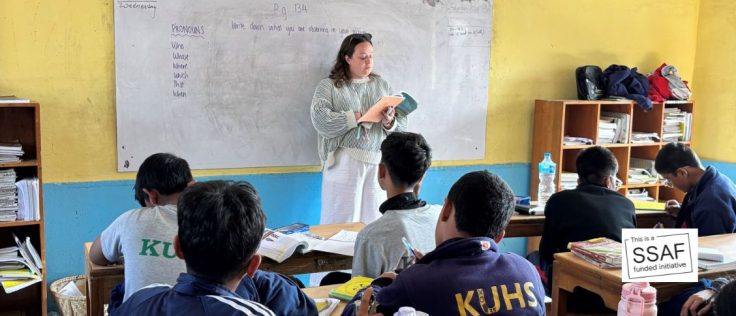Written by Sophie Humphries
Through November and December of 2024, a group of ten Charles Sturt University students embarked on a three-week journey to Nepal, blending adventure, education, and personal growth. Among them were nine pre-service teachers, eager to gain hands-on experience and immerse themselves in a new culture.
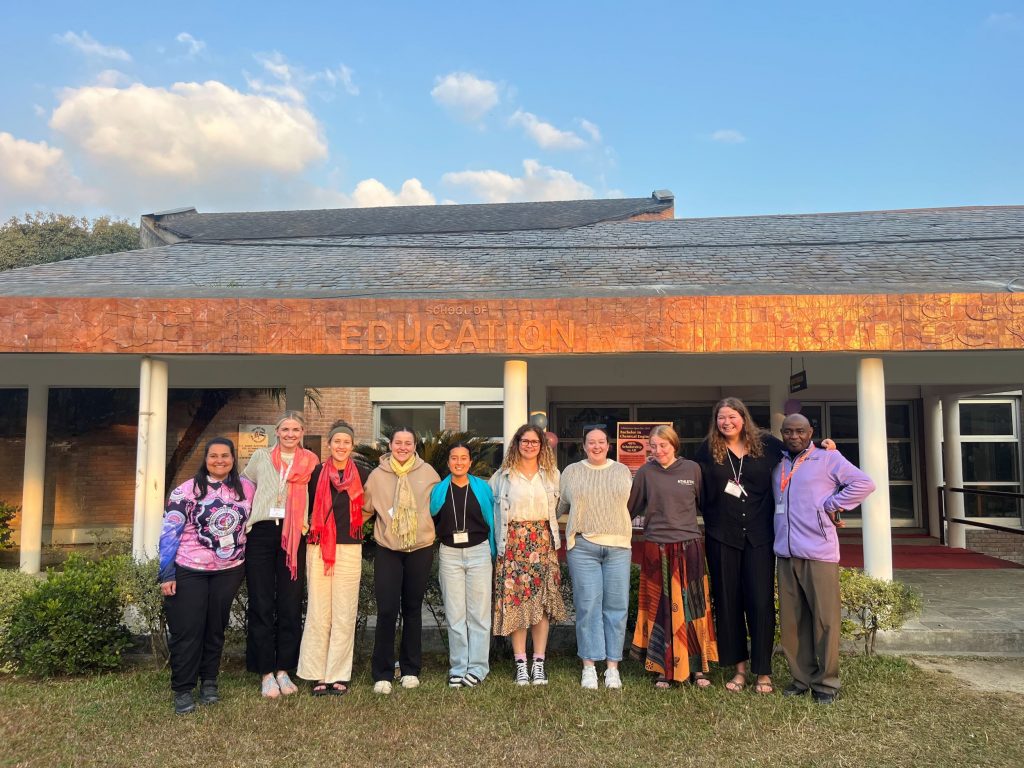
Our week in the small town of Dhulikhel, teaching at Kathmandu University High School, was a highlight that left an indelible mark on both us and the students we taught.
For one week, we stepped into classrooms filled with eager students from Years 5 to 9, each brimming with curiosity and excitement. These learners were as enthusiastic about discovering new ways of learning as we were about exploring innovative methods of teaching.
It was a week filled with hands-on activities, outdoor lessons, and a sense of collaboration that transcended language and cultural barriers.
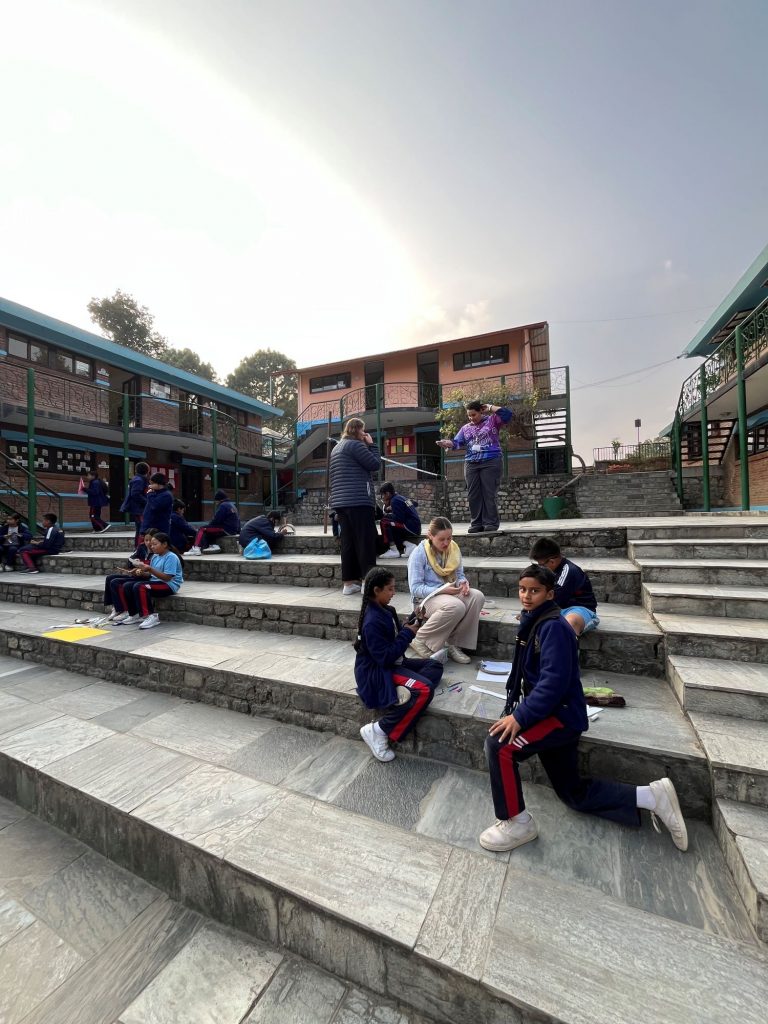
Teaching English in another country was nerve-wracking yet exciting. It was a leap into the unknown, but one that turned out to be incredibly rewarding. I never imagined I’d see significant growth in just one week, but watching my Year 8 English students come out of their shells and volunteer to join and lead conversations left me in awe.
At the beginning of the week, I wanted to connect with my students and understand their expectations of me. The classroom teacher and myself had them write down what they hoped to see in me as their teacher. Using their feedback, I crafted engaging lessons, brought in word banks to expand their vocabulary, and introduced lively literacy games that still all connected to their textbooks. It was about making learning enjoyable and relatable, and their enthusiasm quickly grew.
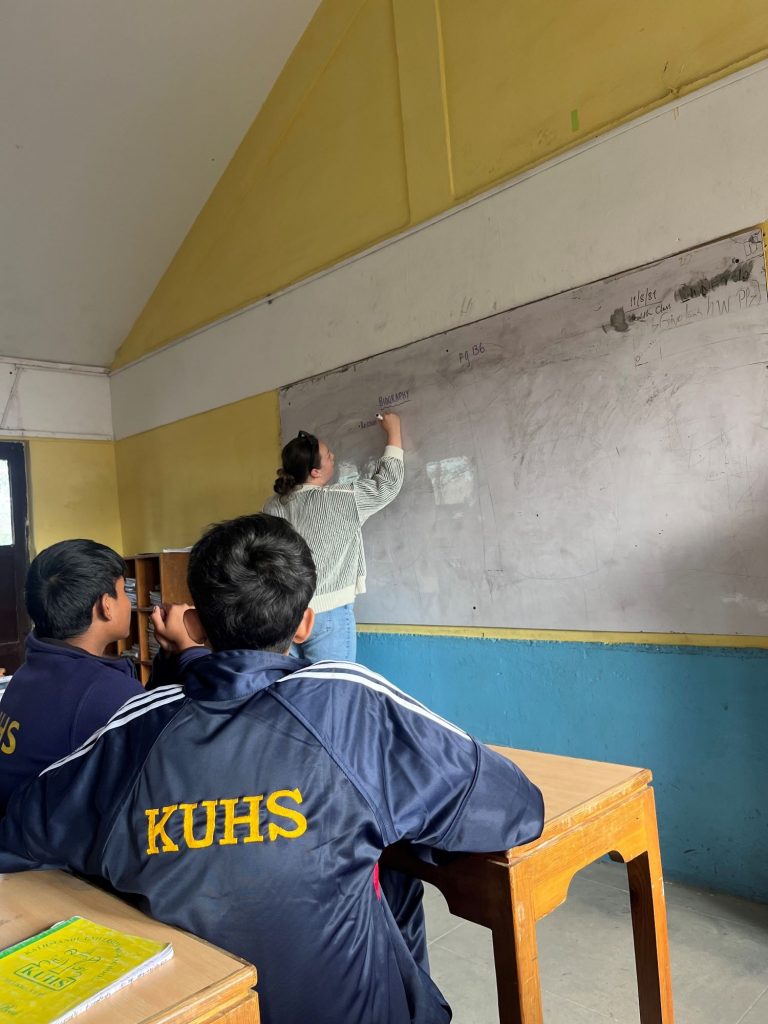
By the end of the week, my final task approached, I asked each student to write me a letter as their final activity, it was based on Australian culture and to make it easier, I provided a simple template, expecting just a page or so.
What I received was beyond anything I could have thought, 35 heartfelt letters, each ranging from two to five pages. Their words reflected not just what they learnt but also how much fun they had and how much they appreciated shift in how content was taught making learning exciting and fresh.
We embraced the opportunity to think creatively, using outdoor spaces to bring lessons to life. Whether it was hands-on math lessons or fun science experiments outside in the courtyard, the joy on the students’ faces made every effort worthwhile. The school’s principal and vice-principal were incredibly supportive, praising our innovative approaches and sharing how much they appreciated our fresh perspective.
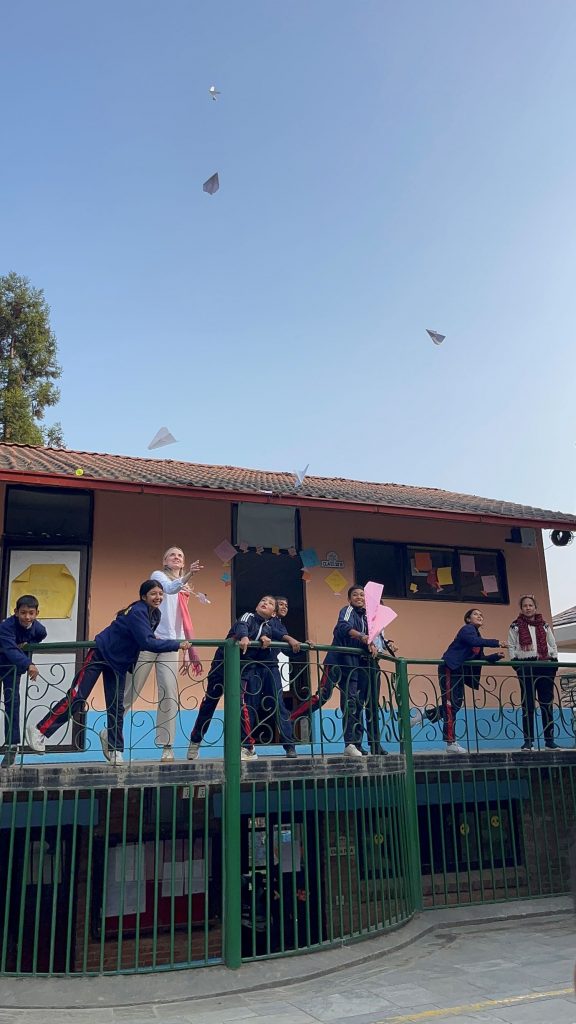
The real magic happened beyond the classroom walls. Living and teaching in a different culture taught me adaptability, cultural sensitivity, and the importance of meeting students where they are. The Kathmandu University High School staff shared invaluable insights into their educational practices, helping me grow both as a teacher and as a person.
The bonds I formed with the students, the staff, and my fellow preservice teachers are what I’ll cherish most. It wasn’t just about teaching grammar or vocabulary, it was about sharing stories, building trust, and creating connections. Watching these students find confidence and joy in learning reaffirmed why I chose this path in the first place.
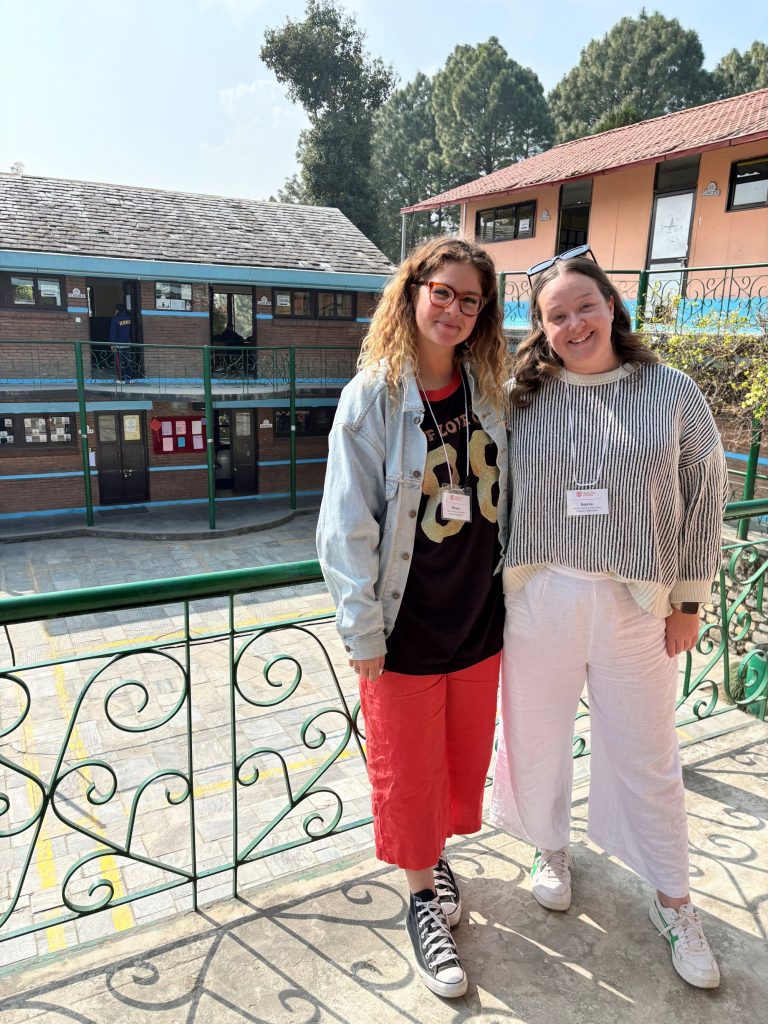
This experience reminded me that teaching is a two-way street. While I came to Nepal hoping to inspire and educate, I left feeling inspired myself. The students’ curiosity, enthusiasm, and kindness left a lasting impression on me. Teaching in Nepal wasn’t just an experience in my journey as an educator; it showed me how learning can be a powerful and shared process between students and teachers.
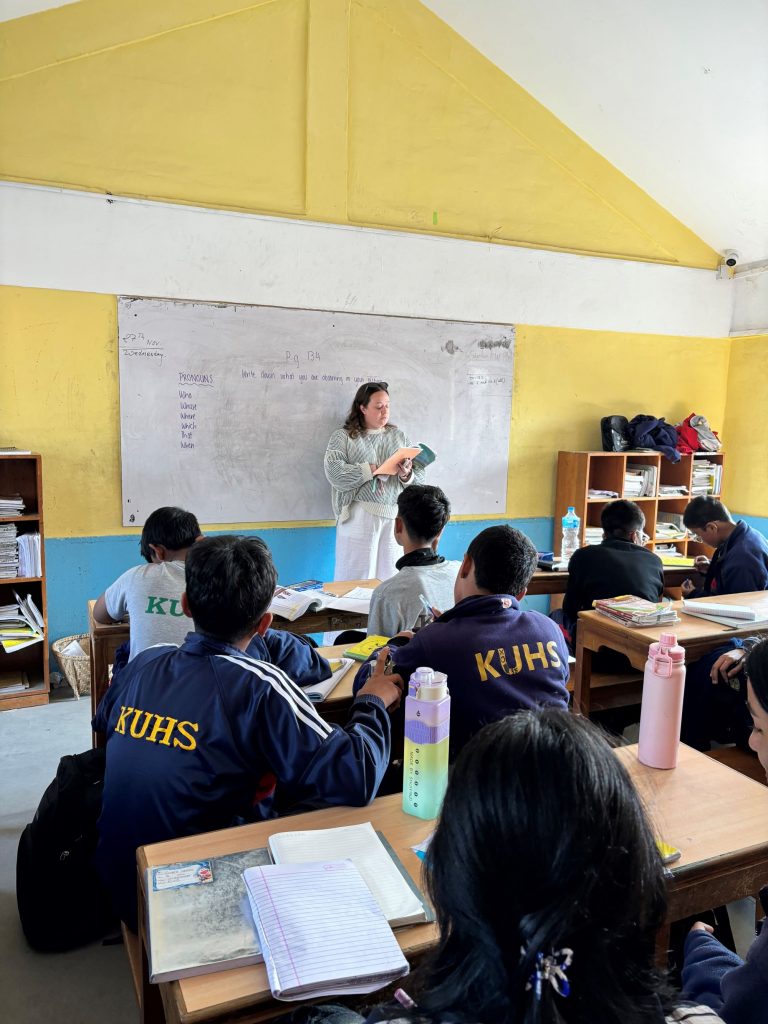
If you ever get the chance to go on this trip, take it. It’s an opportunity to do and see things that few teachers ever experience, from teaching in a new cultural context to forming connections that will stay with you long after you leave.
Click here to see what opportunities CSU Global has for you!
Charlie blog is a SSAF funded initiative


